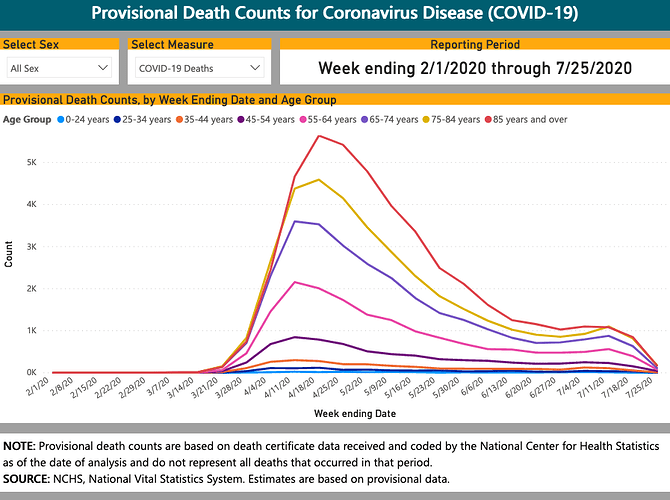Our commitment on this site is to following the highest-quality data wherever they may happen to lead, like it or not. I personally would value a serious critique of the data presented by some of the luminaries.
For example, Chris Masterjohn presented a blog post early on, discussing the behaviour of the virus and coming to some conclusions that are contrary to the usual advice on these forums. I am not competent to critique Professor Masterjohn’s data or his conclusions, which certainly appeared to be well-reasoned. Anyone wishing to criticise his data or his conclusions is welcome to do so, but I for one would be grateful if people would would actually discuss his data and his logic, rather than simply dismissing his expertise. And since that blog post was issued a while ago, it is entirely possible that the situation might now look quite a bit different—to him and to us—from how it did back then. That is science.
As another example, Gabor Erdosi stated in correspondence a while ago that his belief at the time was that the best approach was to eat a ketogenic diet before infection, in order to strengthen the immune system, but to switch to higher carbohydrate intake after infection, in order to fight the virus. (And then presumably back to keto after the infection is over, though I may be putting words in his mouth, here.) Professor Erdosi may very well have changed his opinion as more data have come to light. That is science.
The short paper cited in Consistency’s latest post seems reasonable, and the data are certainly interesting. There does appear to be a somewhat increased risk according to blood type, but if I am reading the article properly, that risk doesn’t seem to rise to serious clinical significance. It is definitely something to bear in mind as a possible problem when treating patients, but just how serious is the risk, when you get right down to it? I don’t see that this paper justifies categorical statements that blood type determines success or failure at fighting off the coronavirus, at least not at this point in our knowledge. Additional data could very well show that (a) blood type is of no concern whatsoever, or (b) blood type is a serious determinant of response to COVID-19. The point is that we don’t know yet, and we may or may not ever know, but that doesn’t mean that the author’s contribution is of no value. That is science.

